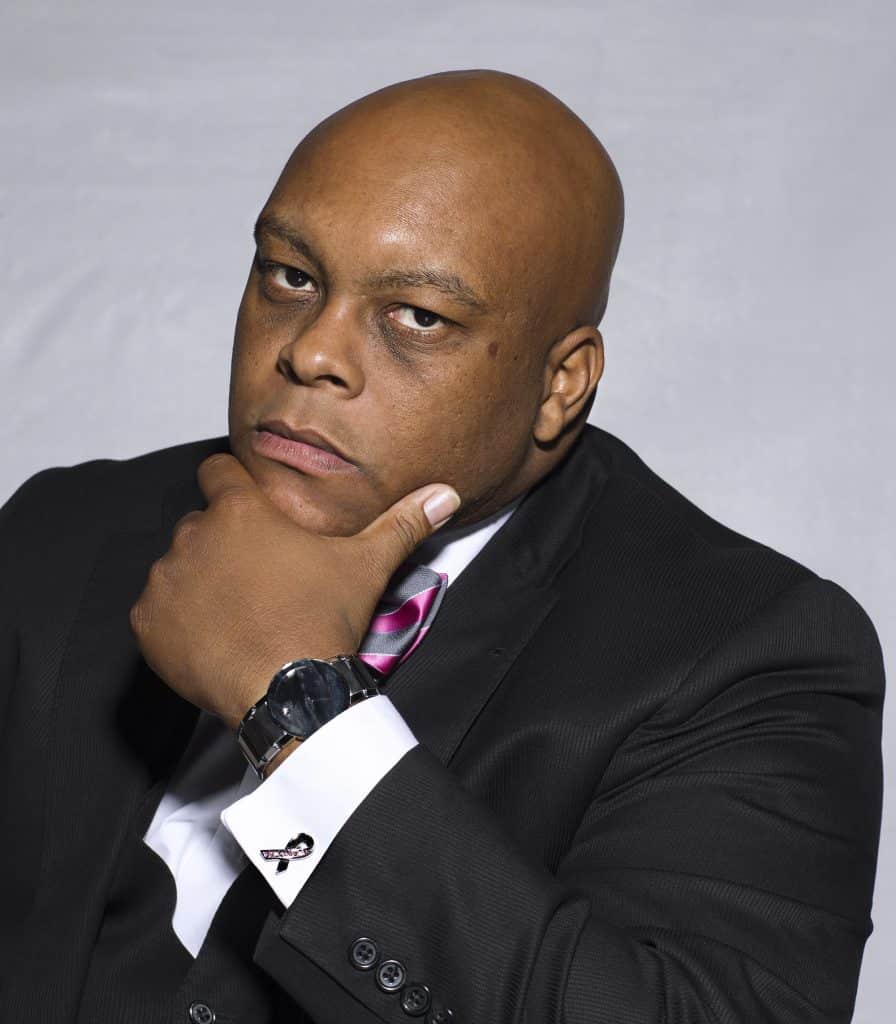In 2009 I noticed a lump under on my chest while I was in the shower one day. This occurred during flag football season, so I figured it was a deep tissue bruise. After a couple of months when it didn’t go away, I decided to go to the doctor because it seemed to be getting larger. After the physician requested an ultrasound, then a biopsy, I was called for a return visit for my test results. I remember when the doctor told me I had cancer and by heart sank. I became terrified. How could a man get breast cancer? I am only 32 years old – does this happen to young people often? My first question was, “How long do I have to live?” I had to get my thoughts together and figure out what the entire process would be. There were a lot of decisions made quickly, including finding an oncologist I would be comfortable with.
After initial consultations, I began my journey with my treatments in early 2010. I started with a double mastectomy to reduce the risk of the cancer returning on the opposite side of my chest. I followed my surgery with five months of chemotherapy treatments. Each treatment would last between 5 to 8 hours per visit. It was a very challenging time but I had great support from family and friends. Chemotherapy is extremely hard; there are so many things that occur in a person, and every person reacts differently to the treatment. Different side effects may occur in people who take chemotherapy, and the same side effect can have different reactions for patients. The first drug I took made me feel like I had ants crawling under the skin. The second drug affected my taste; as soon as the nurse began the injection, I tasting what seemed like metal, a very weird sensation. As if the effects from the first two drugs weren’t enough, the third—nicknamed “red devil”—was the hard one. Imagine a seven-inch long, one-inch diameter syringe full of a drug thick enough to be syrup.
The effects of dealing with cancer are great in magnitude. Mentally, I went through so many thoughts including questions about my family’s genetic code. Was this passed along in my family, and would I pass it along to my offspring? What will people say or think about me? How will people treat me? My short-term memory was affected as well.
The battle educated me about cancer in so many areas. I learned about the chemicals used to kill the cancer cells. I learned more about my strength and perseverance. I already had established my faith and grew up in the church. But cancer made me pray harder and trust more than I ever had, resulting in increased, everlasting faith. I quickly appreciated life and relationships more.
I learned more about relationships during my time of going through treatments then I may have learned in a decade. The entire journey was so powerful that I decided to write a book called “The Strength of a Man” so that it may help other men prepare for a winnable battle. I have also become a big advocate for men to go to the doctor – I sure have changed my perspective positively about annual checkups.
All the real men will take responsibility in taking care of their bodies and monitoring their health. I may not have been able to prevent getting breast cancer but having breast cancer did not make me any less of a man. In fact, breast cancer made me a better man.

